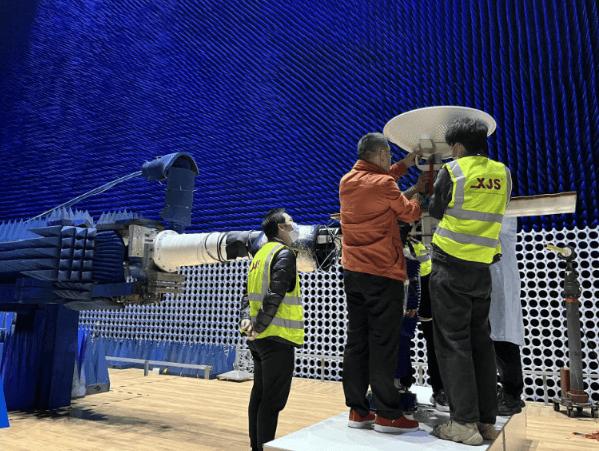In today's world of ubiquitous wireless connectivity, choosing the right Distributed Antenna System (DAS) is crucial for ensuring reliable and efficient network coverage. DAS antennas play a vital role in distributing cellular signals throughout buildings, campuses, and other large venues.
With various types of DAS antennas available, it's essential to understand their unique characteristics and suitability for different network requirements. In this article, we will explore the most common DAS antenna types and help you determine which one best fits your network needs.
Omni Ceiling Antennas
Omni ceiling antennas are a popular choice for indoor DAS deployments. These antennas provide 360-degree horizontal coverage, making them ideal for open spaces such as offices, retail stores, and warehouses. Omni ceiling antennas are designed to be mounted on ceilings, blending seamlessly with the interior aesthetics. They offer a wide frequency range, typically covering multiple cellular bands, ensuring compatibility with various wireless carriers. However, their omnidirectional coverage may result in signal overlap and potential interference in dense deployments.
Log Periodic Antennas
Log periodic antennas are known for their wide frequency range and directional coverage. These antennas consist of a series of dipole elements arranged in a logarithmic pattern, allowing them to maintain consistent gain and radiation patterns across a broad spectrum. Log periodic antennas are commonly used in outdoor DAS installations, such as stadiums, airports, and large campuses. They offer excellent coverage and penetration, making them suitable for challenging environments. However, their larger size and directional nature may require careful planning and positioning to achieve optimal coverage.
Indoor Wall Mount Panel Antennas
Indoor wall mount panel antennas are designed for discreet installation on walls, providing a low-profile solution for indoor DAS deployments. These antennas offer directional coverage, focusing the signal towards specific areas within a building. Wall mount panel antennas are available in various gain options, allowing customization based on coverage requirements. They are ideal for corridors, hallways, and smaller rooms where targeted coverage is necessary. However, their limited horizontal coverage may necessitate multiple antennas to achieve seamless connectivity throughout the building.
Indoor Wall Mount Panel Antenna
Panel Antennas
Panel antennas are versatile and widely used in both indoor and outdoor DAS installations. They provide directional coverage, concentrating the signal in a specific direction. Panel antennas come in different sizes and gain options, catering to various coverage needs. They can be mounted on walls, poles, or other structures, offering flexibility in deployment. Panel antennas are suitable for targeted coverage in specific areas, such as conference rooms, auditoriums, or outdoor sectors. However, their directional nature requires careful planning to ensure adequate coverage and minimize dead spots.
Factors to Consider When Selecting a DAS Antenna
When choosing a DAS antenna, several factors must be considered to ensure optimal network performance.
- First, the coverage requirements and building layout must be assessed to determine the most suitable antenna type and placement.
- Consider the frequency bands and network capacity needed to support the expected user traffic.
- Aesthetics and installation constraints should also be taken into account, especially in indoor environments where antennas need to blend with the décor.
- Lastly, the budget and future scalability will be evaluated to ensure the chosen antenna solution is cost-effective and can accommodate potential network expansions.
Conclusion
Selecting the right DAS antenna is crucial for achieving reliable and efficient wireless coverage in various environments. Omni ceiling antennas, log periodic antennas, indoor wall mount panel antennas, and panel antennas - each have their unique strengths and limitations. By understanding the characteristics and suitability of each antenna type, network planners can make informed decisions based on their specific requirements.
It is highly recommended that you consult with a professional DAS antenna manufacturer to assess your network needs and receive expert guidance on choosing the most appropriate antenna solution. With careful consideration and the right antenna selection, you can ensure optimal wireless performance and a seamless user experience!

.jpg)
.png)
.jpg)
.png)



